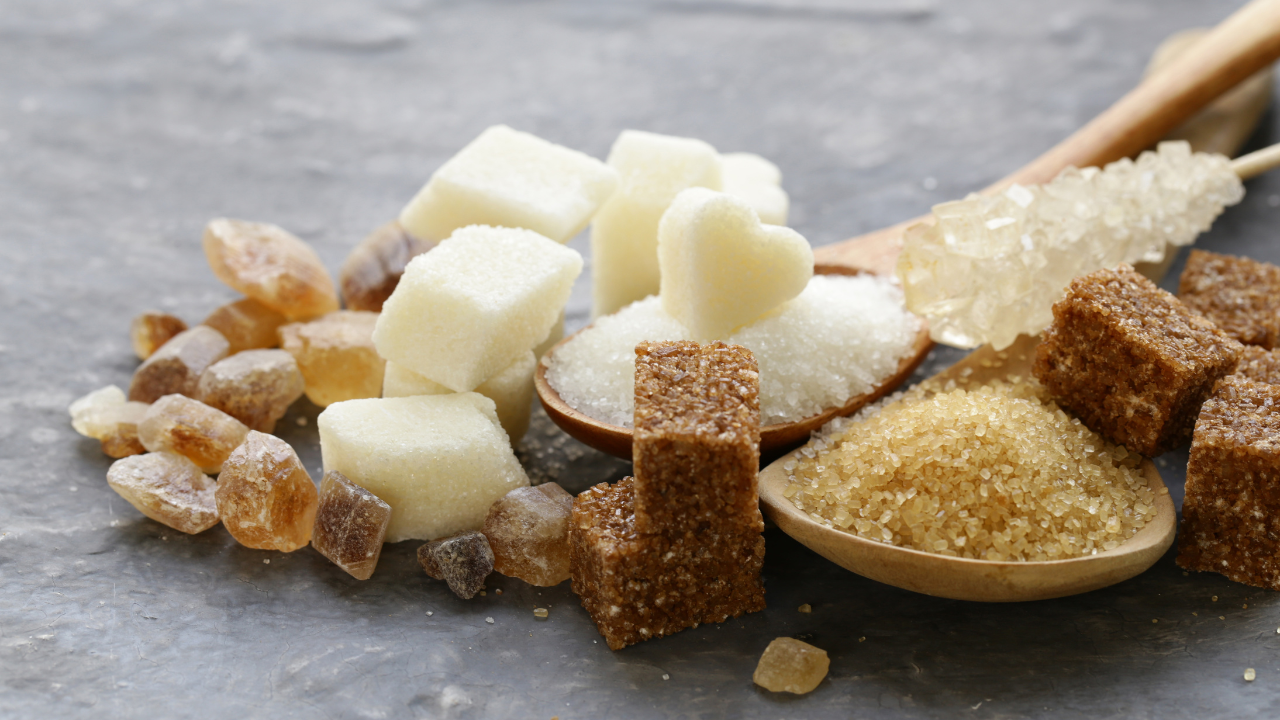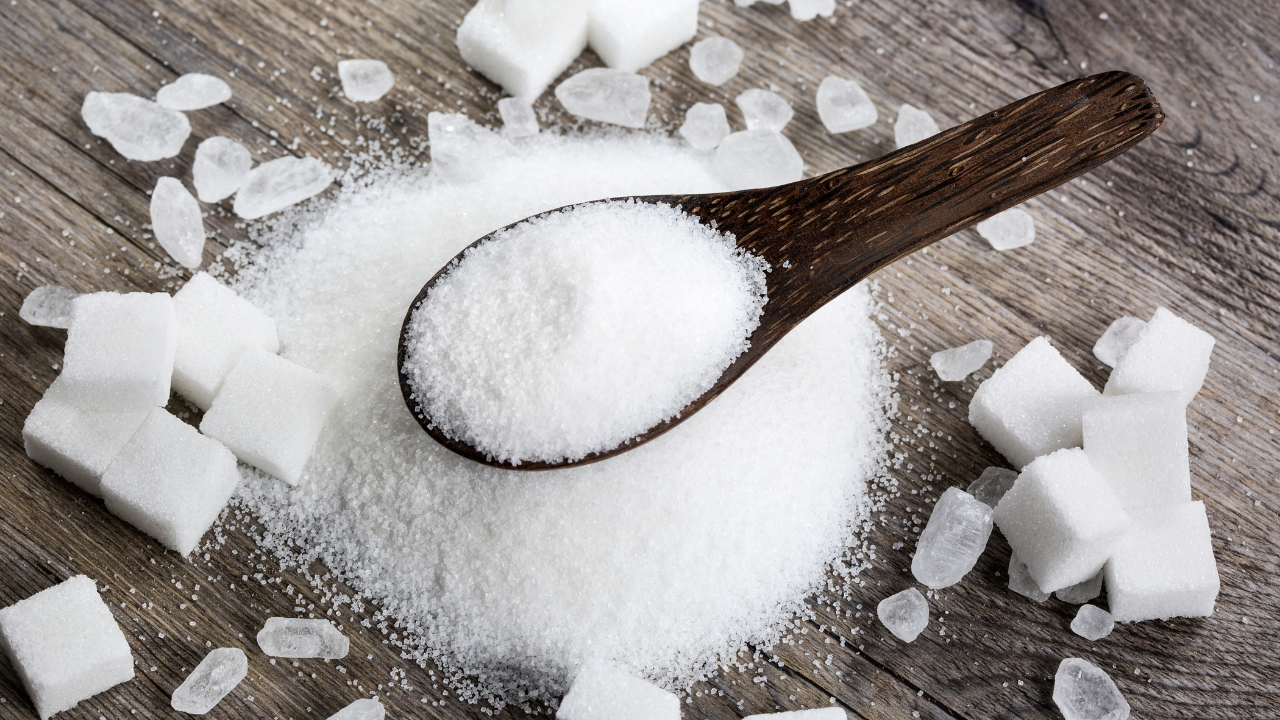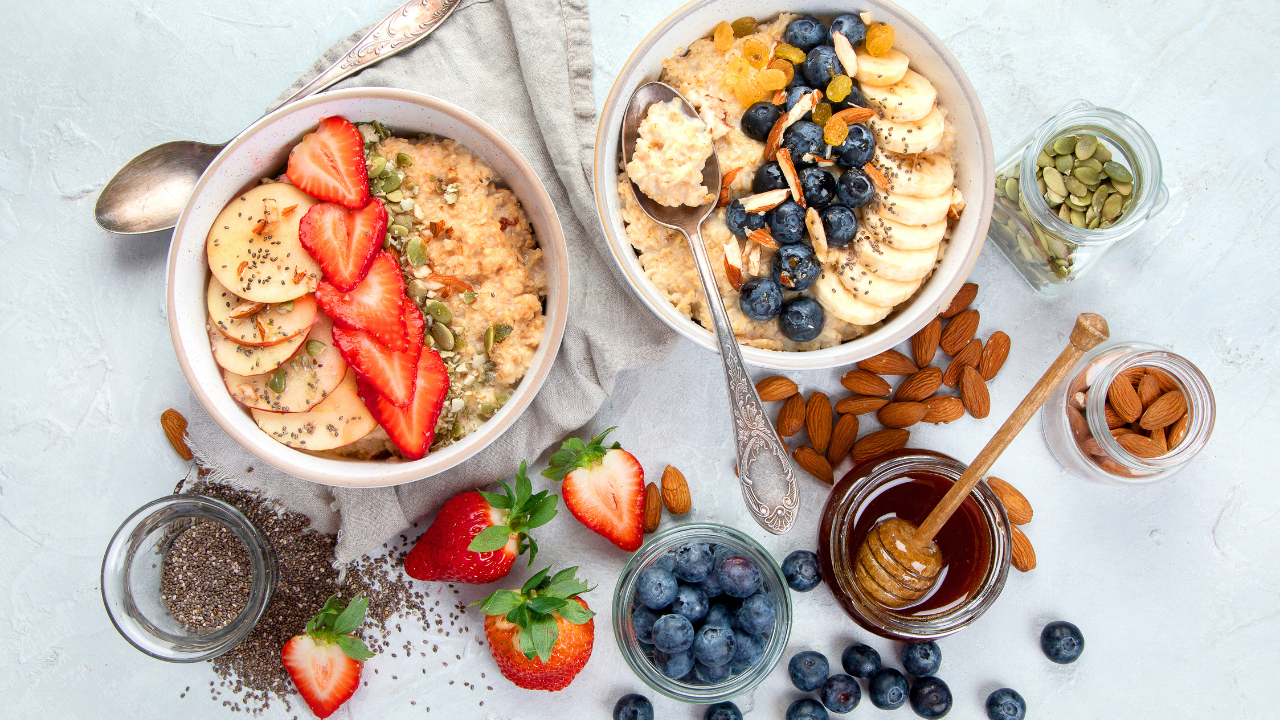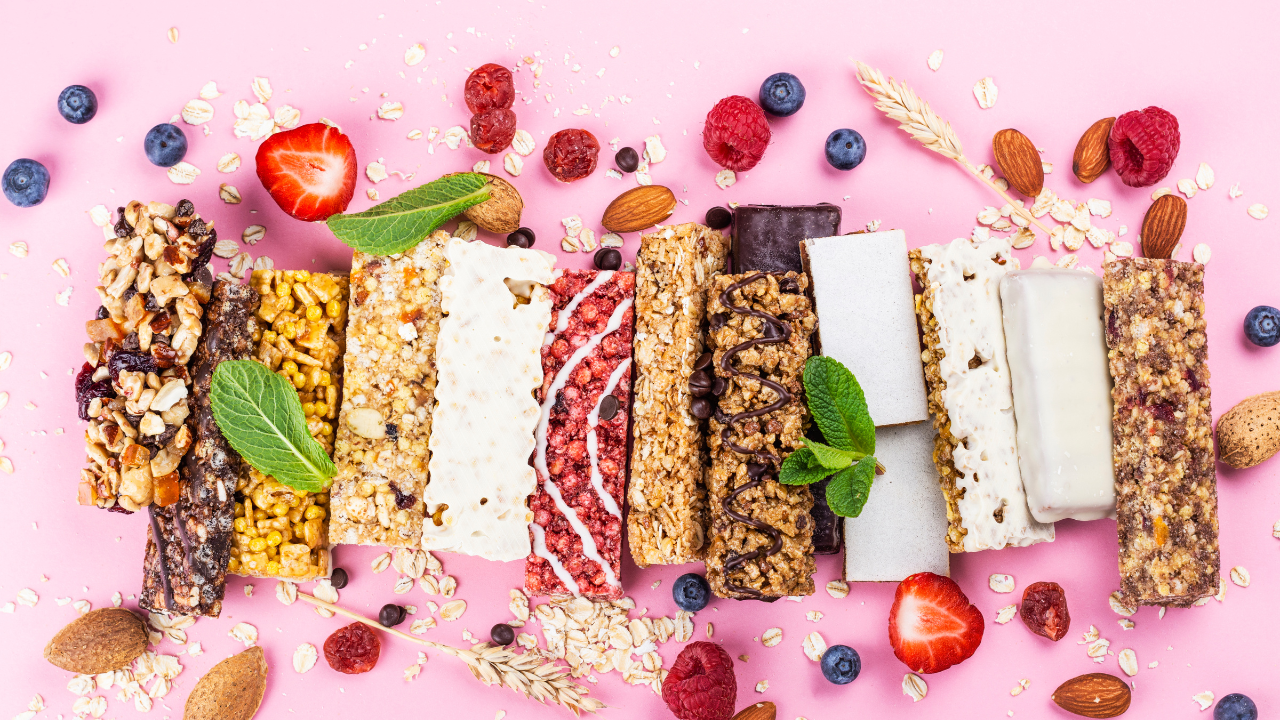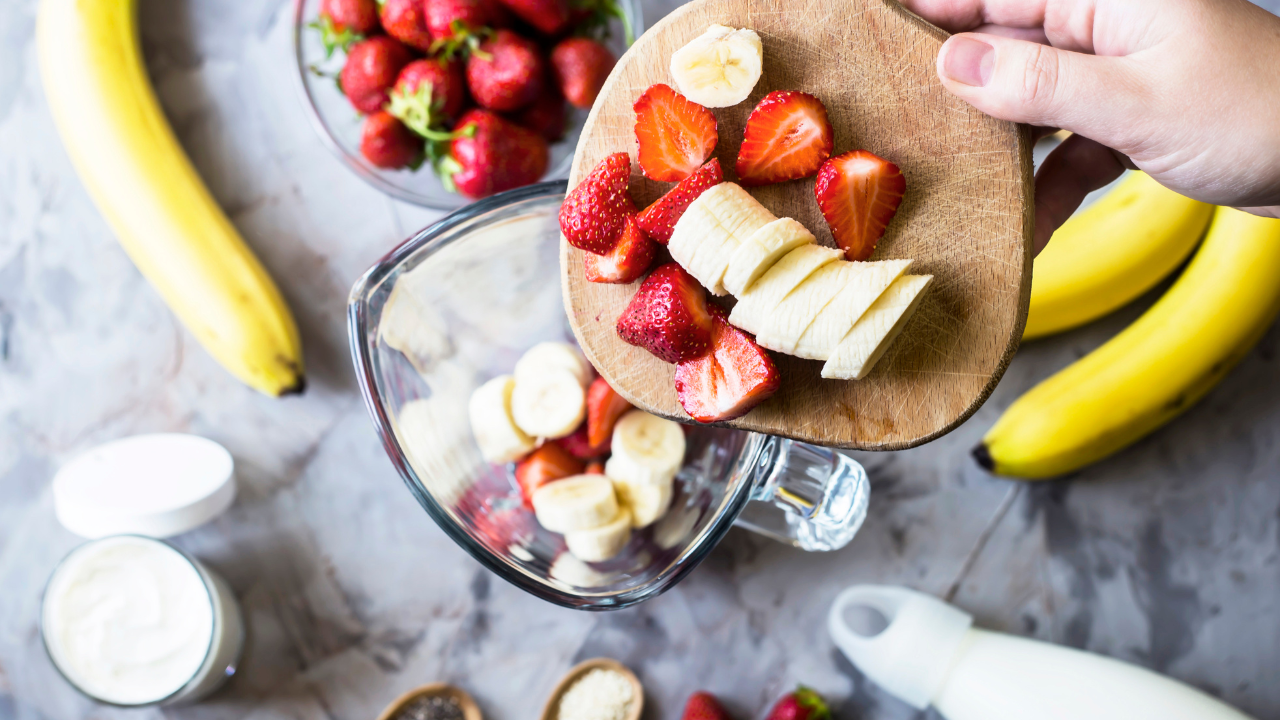Do Added Sugars Wreak Havoc on Your Gut-Microbiome? What You Need to Know!
Let me guess.. You’re scrolling on Tik Tok and you see some random person telling you that sugar is the enemy, and even a bite of a sugary dessert can cause an inflammatory reaction in your microbiome, kill good bacteria, give you leaky gut and cause cancer…
Whoa. You SO didn’t need to hear that unsolicited advice.
But is it true? So you quickly start googling:
“Does sugar affect the gut microbiome?”
“Sugar Gut Microbiome Cancer”
“Is sugar bad for my gut?”
Until you’re in a rabbit hole and scared to touch a bite of a pastry..
Well, you’re in the right place friend. Let’s break down this topic today, and take a full, unbiased look at what we know from science about this interesting connection.
What is Sugar?
The general term sugar refers to “sucrose”, also known as common table sugar. Sucrose is made up of glucose and fructose. Glucose is the carbohydrate molecule our body uses primarily for energy.
The term sugars (plural) refers to any sweet-tasting, soluble carbohydrate. Sugars can be in the form of either monosaccharides (aka one unit sugars such as glucose, galactose, or fructose) or disaccharides (two unit sugars such as lactose or maltose). There are various types of sugars and they can be found and extracted from various sources, such as:
Sugar Beets: used to make sucrose (table sugar)
Sugar Cane: used to make sucrose, cane sugar, dextrose
Agave: used to make agave syrup (also tequila!)
Corn: corn syrup or high fructose corn syrup (HFCS)
Molasses: is the thick, brown syrup left after the sugar has been removed from sugar cane juice and is added back to white sugar to make brown sugar
Regardless of its source, the body metabolizes each sugar molecule, whether it is glucose from candy or a fruit, in the same way. However, it is the overall “packaging” that differentiates how our body will react to the source of the sugar based on the food it is found in and the other components.
This is where the concept of added vs natural sugars comes in.
“Added” vs “Natural” Sugars
NATURAL SUGARS
Naturally occurring sugars exist in most foods, but are found in the highest concentration in grains, vegetables, fruits and milk products.
These are also known as “intrinsic sugars”, meaning they are encapsulated by a plant cell wall. Due to the presence of the cell wall (which contains a fiber known as cellulose), they tend to be digested more slowly and take longer to enter the blood stream than free sugars. This means they have a lower effect on blood sugar and insulin levels.
ADDED SUGARS
Added sugars are also known as “free sugars”. They are the mono- and disaccharides which are added to processed and prepared foods by the manufacturer, and found in concentrated forms in syrups, jams and juices. Foods such as ketchup, barbeque sauces and granola often have a plethora of added sugars.
The issue with added sugars is that they add extra calories without extra nutrition (vitamins, minerals) to our diet. Further, because of the lack of fiber that is common with most processed foods, they have a more significant effect on raising blood sugar levels.
As a whole, it is the added sugars that we need to be mindful of limiting in our diet.
You may want to read: Deep Dive: Added Sugars vs Natural Sugars & What You Need To Know (Part 1)
What is Your Gut Microbiome?
The gut microbiome consists of trillions of living microbes in your gut (AKA your digestive tract). This includes the path all the way from your mouth to the other end (your anal canal).
The gut-microbiome is estimated to include the same amount of bacterial cells as human cells - wild! The microbiota inhabiting our gut include bacteria, fungi, protozoa, viruses, and archaea.
Why care about the gut microbiome?
For a few very important reasons! The gut microbiome has a range of essential roles for both our brain and our body:
Mental Health: producing neurotransmitters, gut-brain communication.
Metabolism: increasing insulin sensitivity, allowing for carb/protein/fat utilization, managing blood sugar, aiding satiety signaling.
Digestion: preventing intolerances, supporting a strong gut lining, breaking down food, fermenting non-digestible fibres to form SCFA (short-chain fatty acids).
Immunity: acting as a defence mechanism, fighting infection, preventing disease.
You may want to read: Gut Microbiome: What Is It and How Can We Better Support Our Gut Bugs?
Do Added Sugars Affect Your Gut Microbiome?
So, now that we’ve established the importance of our gut microbiomes, let’s dive into the relationship between added sugar intake and gut microbiome health. Our gut microbiomes are largely impacted by environmental factors, like our diet. The food that you consume provides energy to the microbes within your gut. A look into the literature available suggests that added sugars are specifically associated with poor gut microbiome health [1,2].
This may be because a diet high in added sugar is linked to:
1. DECREASE IN GOOD BACTERIA
High intake of added sugars has been linked to a decrease in ‘good’ bacteria (ex. Bifidobacterium and Lactobacillus). These bacteria are often found in the intestines and may inhibit some viruses, provide immunity against certain pathogens, and help to prevent infections [2,3]. Since added sugars are quickly absorbed in the small intestine, they are unable to provide energy (aka food) to the microbiota in the distal colon such as these beneficial bacteria.
Conversely, natural sugars are digested and absorbed slowly, and are able to travel past the small intestine to provide nutrients to the microbiota in the distal colon. Therefore, prioritizing the intake of natural sugars may promote the growth of ‘good’ bacteria’ that can help support our health (which we want!)
2. INCREASE IN BAD BACTERIA
High intake of added sugars has, relatedly, been linked to the increase of potentially ‘bad’ bacteria (ex. Clostridium difficile and specific species of Escherichia coli).These types of bacteria may cause infections or inflammation of the large intestines that result in symptoms ranging from stomach cramps, diarrhea, vomiting, etc [2].
Although added sugars are absorbed in the small intestine, excess sugars continue to travel throughout the gut, where they are utilized by bacteria that favour simple sugars rather than those that prefer complex sugars which are also commonly found alongside prebiotics in whole, plant foods (ie. fruits, starchy vegetables, grains) [4].
AS A RESULT... GUT DYSBIOSIS
As a result of these changes, our gut microbiota composition is altered. When there is an increase in bad (aka ‘pathogenic’ bacteria) and decrease in the good (aka ‘beneficial’) this is known as dysbiosis.
Gut dysbiosis has been linked to the development of many health conditions such as irritable bowel syndrome (IBS), small intestinal bacterial overgrowth (SIBO), type 2 diabetes, cardiovascular diseases, as well as inflammation of the gut [5].
However, keep in mind that these studies are based on diets consistently above the recommended intake of added sugars.
How Much Should You Eat For Good Gut Health?
According to the World Health Organization (WHO), the combination of added sugar intake and 100% fruit juices, should be less than 10% of your total energy intake [6]. However, I do believe that limiting to less than 5% is ideal for optimal health.
Consistently, although Health Canada does not have quantitative guidelines for added sugar intake, they recommend consuming foods with little to no added sugars [7].
P.S. Want to start finding relief from bloating and be added to my Gut Health Wisdom Weekly email list? Grab your FREE Beat the Bloat Cheat Sheet!
Ratio Matters – It’s Not All or Nothing
When it comes to nutrition and diet, it’s all about relativity. One single thing we do isn’t going to make or break our health.
Similarly, occasionally enjoying a dessert once in a while isn’t going to destroy your gut microbiome.
If you’re focusing on eating a plant-diverse diet with fibre and prebiotics, anti-inflammatory foods, then occasional amounts of adding sugar are not going to have much impact.
However, if you’re eating a diet void of fibre and probiotics, and replacing that with refined carbohydrates and added sugars, then yes, your gut health will suffer.
You may want to read: The Importance of Diet Diversity for a Healthy Gut and Finding Freedom From IBS
P.S. Wondering exactly how to support a gut friendly diet and robust gut-microbiome with proven meal planning and prepping strategies?
Grab the Ultimate Gut-Friendly Diet Meal Planning Mini Course + Resource Bundle Now!
Be Weary of All or Nothing Advice
As you can see from just this article, nutrition is a highly nuanced topic! Social media often gives a quick snapshot of a topic that may result in oversimplification or misrepresentation of the information. This is why it is so important to seek nutrition advice from reputable sources.
When looking at nutrition-related content on social media, consider the following points:
Qualification: Consider the qualifications of the person providing the nutrition information. Look for registered dietitians (RDs) or regulated health professionals who have undergone rigorous training to provide reliable nutrition advice.
Credibility: Evaluate the sources referenced in the information. Are they from reputable scientific journals? Be cautious of anecdotal evidence or unsupported claims.
Biases and Conflicts of Interest: Assess whether the author or source has any potential biases or conflicts of interest that may influence the information they share. Are they trying to sell a product or solution by convincing you that you have a problem? If so, be weary of their advice.
Oversimplification: Be wary of oversimplified explanations or claims that make nutrition advice seem too good or too bad to be true. Nutrition is a VERY complex field, and quick snapshots may not capture the full picture!
Balanced Perspective: Look for balanced perspectives that consider the overall context of a healthy diet and lifestyle. Be cautious of overly restrictive approaches, all or nothing language, and claims that don’t seem sustainable or supported by scientific evidence.
Final Thoughts
Overall, while occasional consumption of added sugars is unlikely to severely impact gut health, a diet focused on diverse plant-based foods, fiber, and probiotics is key for maintaining a healthy gut microbiome!
Summary:
Added sugars, as opposed to natural sugars, have been associated with negative effects on gut microbiome health. Diets high in added sugars may lead to a decrease in beneficial bacteria and an increase in potentially harmful bacteria, resulting in gut dysbiosis.
Gut dysbiosis, characterized by an imbalance in gut bacteria, has been linked to various health conditions such as irritable bowel syndrome (IBS), small intestinal bacterial overgrowth (SIBO), type 2 diabetes, cardiovascular diseases, and inflammation of the gut.
The World Health Organization (WHO) recommends that added sugar intake, including 100% fruit juices, should be limited to less than 10% of total energy intake. However, aiming for less than 5% is considered ideal for optimal gut health.
Nutrition advice should be sought from reputable sources, considering the qualifications and credibility of the author, as well as potential biases or conflicts of interest. It is important to avoid oversimplification and misrepresentation of information when evaluating nutrition-related content on social media platforms.
In my 1-1 Gut Harmony Method Program, we work on integrative strategies including nutrition, hydration, supplementation and lifestyle to optimize your gut-microbiome.
Are you ready for 1-1 support for IBS and SIBO? Apply for a free 30-minute Clarity Call. We will discuss your health goals & history, and how we can get you to the healthiest version of you.
Feel free to pop any questions below, and for more tips on gut health, follow me on my social media @leighmerotto_rd.
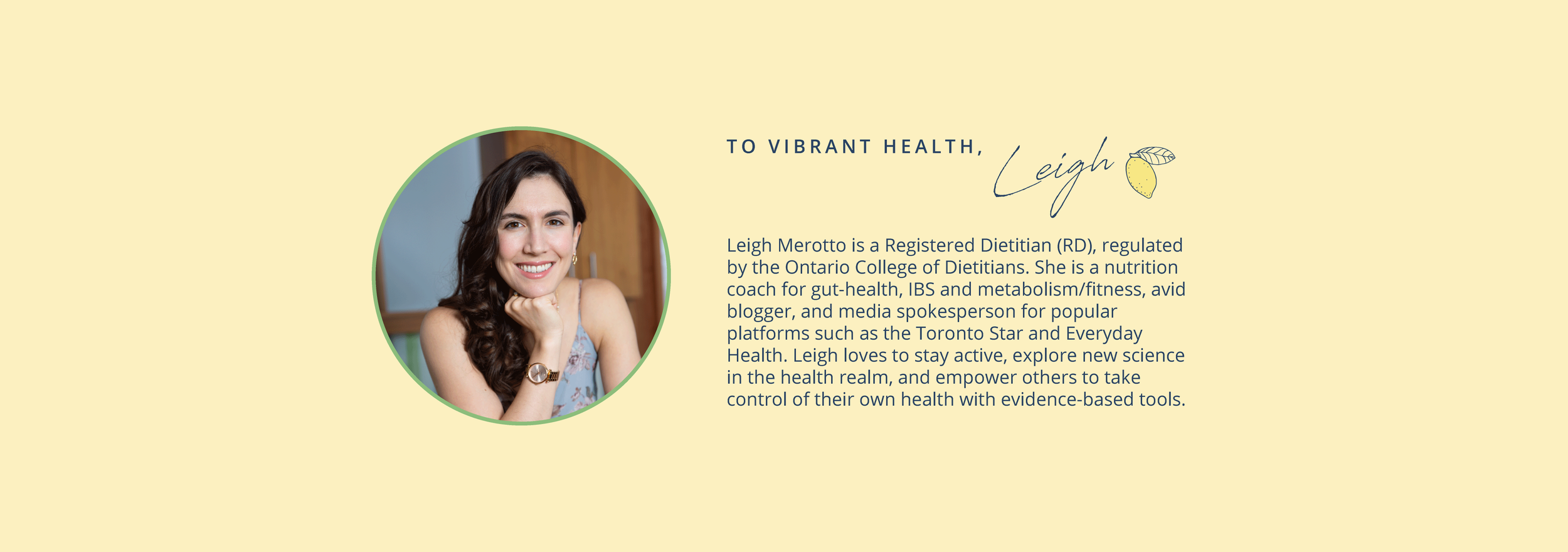
BE SURE TO FOLLOW ME HERE
References
[1] Malik, V. S., & Hu, F. B. (2015). Fructose and Cardiometabolic Health: What the Evidence From Sugar-Sweetened Beverages Tells Us. Journal of the American College of Cardiology, 66(14), 1615–1624. https://doi.org/10.1016/j.jacc.2015.08.025
[2] Makki, K., Deehan, E. C., Walter, J., & Bäckhed, F. (2018). The Impact of Dietary Fiber on Gut Microbiota in Host Health and Disease. Cell Host & Microbe, 23(6), 705–715. https://doi.org/10.1016/j.chom.2018.05.012
[3] Vlasova, A. N., Kandasamy, S., Chattha, K. S., Rajashekara, G., & Saif, L. J. (2016). Comparison of probiotic lactobacilli and bifidobacteria effects, immune responses and rotavirus vaccines and infection in different host species. Veterinary Immunology and Immunopathology, 172, 72–84. https://doi.org/10.1016/j.vetimm.2016.01.003
[4] Zoetendal E.G., Raes J., van den Bogert B., Arumugam M., Booijink C.C.G.M., Troost F.J., Bork P., Wels M., de Vos W.M., Kleerebezem M. The human small intestinal microbiota is driven by rapid uptake and conversion of simple carbohydrates. ISME J. 2012;6:1415.
[5] Meng, Y., Li, S., Khan, J., Dai, Z., Li, C., Hu, X., Shen, Q., & Xue, Y. (2021). Sugar- and Artificially Sweetened Beverages Consumption Linked to Type 2 Diabetes, Cardiovascular Diseases, and All-Cause Mortality: A Systematic Review and Dose-Response Meta-Analysis of Prospective Cohort Studies. Nutrients, 13(8), Article 8. https://doi.org/10.3390/nu13082636
[6] Guideline: Sugars intake for adults and children. (2015, March 4). World Health Organization. https://www.who.int/publications-detail-redirect/9789241549028
[7] Health Canada. (2020, July 3). Prepare meals and snacks using healthy ingredients. Canada Food Guide. https://food-guide.canada.ca/en/healthy-eating-recommendations/limit-highly-processed-foods/prepare-meals-and-snacks-using-healthy-ingredients/

